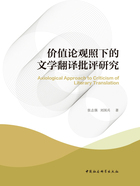
0.1.1 Translation studies in the West
Translation Studies has witnessed a great progress in the 20th century.SnellHornby(2006:preface)in her The Turns of Translation Studies:New Paradigms or Shifting Viewpoints?offers us a critical assessment of the development of translation studies,concentrating,as she herself says,“on the last twenty years and focusing on what have turned out to be ground-breaking contributions(new paradigms)as against what may be seen in retrospect to have been only a change in position on already established territory(shifting viewpoints)”.Actually,Snell-Hornby gives a tentative assessment of the development of Translation Studies over the past thirty years.For she talks about the “pragmatic turn” in linguistics and in translation theories owing to the development of text-linguistics in the 1970s,the “cultural turn” in the 1980s,the empirical and cognitive turn in interpreting studies,and the globalization turn in the 1990s.She also gives a review of the state of Translation Studies at the turn of the millennium.She observes a tendency of “back to linguistics” shown by the “resurrecting the age old debate on the concept of equivalence” and the use of computer corpora “with the themes of‘translation universals'”(ibid: 151-152).She comments that “[i]t seems that Translation Studies,after the‘cultural turn' of the 1980s,the‘historical curve' and the‘cognitive twist' of the 1990s(see Chesterman 2002),seems at the beginning of the new century to be facing a globalized,hence anglophile levelling off”(ibid: 155).In recent years,some scholars also speak of an“ideological turn”(Matthew Wing-Kwong Leung)or a “sociological turn”(Michaela Wolf),but in Snell-Hornby's opinion,they are not new paradigms and can be embodied in the “cultural turn” in its broad sense(ibid: 172).
From the above-mentioned development in Translation Studies,we can see that the discipline at present is becoming more and more interdisciplinary and approaches are becoming more and more pluralistic.Different cultural approaches and linguistic approaches are still underway.Translation scholars are seeking breakthroughs by means of borrowing theories and findings from other fields such as philosophy,psychology,neurophysiology,sociology etc.Mona Baker,for example,introduces narrative theory(the typology of narrative proposed by Somers and Gibson)to the study of translation and interpretation and published her Translation and Conflict: A Narrative Account providing“an original and coherent model of analysis that pays equal attention to micro-and macro aspects of the circulation of narration in translation,to translation and interpretation,and to questions of dominance and resistance” especially in times of war(Baker,2006:back cover).She also wrote a series of articles on corpus-based translation studies.Meanwhile,there is also a tendency to combine literary and linguistic approaches with cultural approaches.Some achievements have been made in this respect both at home and abroad.